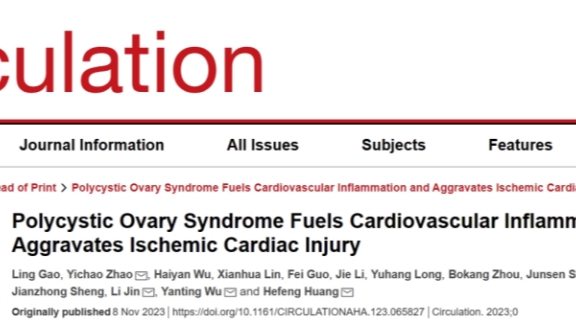Cardiovascular
Research published on how common female disease affects the heart
Local medical experts have an innovative theory on the connection between the most common endocrine disease in women of reproductive age and their increased risk of cardiovascular disease, which they tested through animal experiments.
The research was published by world-leading journal Circulation, offering important evidence for new intervention measures on cardiovascular disease in young women, boosting the development of innovative medications and therapies.
Polycystic Ovary Syndrome, PCOS, is a common disease that features obesity, insulin resistance, abnormal glucose levels and fat metabolism. Previous research mainly focused on the mechanism between reproductive disorders and PCOS. Along with the rising incidence of young women with acute myocardial infarction, female cardiovascular health management has attracted rising concern, especially the connection between heart disease and PCOS.
Previously, the obesity and abnormal metabolism associated with PCOS was believed to be the reason for a rising risk of cardiovascular disease, however epidemiological studies ruled out that connection. The mechanism through which PCOS affects cardiac health in women remains unclear.
Dr Huang Hefeng from the Obstetrics and Gynecology Hospital of Fudan University led her team in animal experiments and found previously unrecognized mechanisms through which PCOS could affect cardiovascular health in women – PCOS may promote myocardial macrophage accumulation and post-myocardial infarction (MI) cardiac remodeling because of augmented splenic myelopoiesis.
“It is a new mechanism indicating the heart health risk for women with PCOS, which can significantly suppress cardiac inflammation and improve cardiac injury after MI,” Huang said. “The discovery provides a new route for doctors on PCOS patients’ heart health management.”

